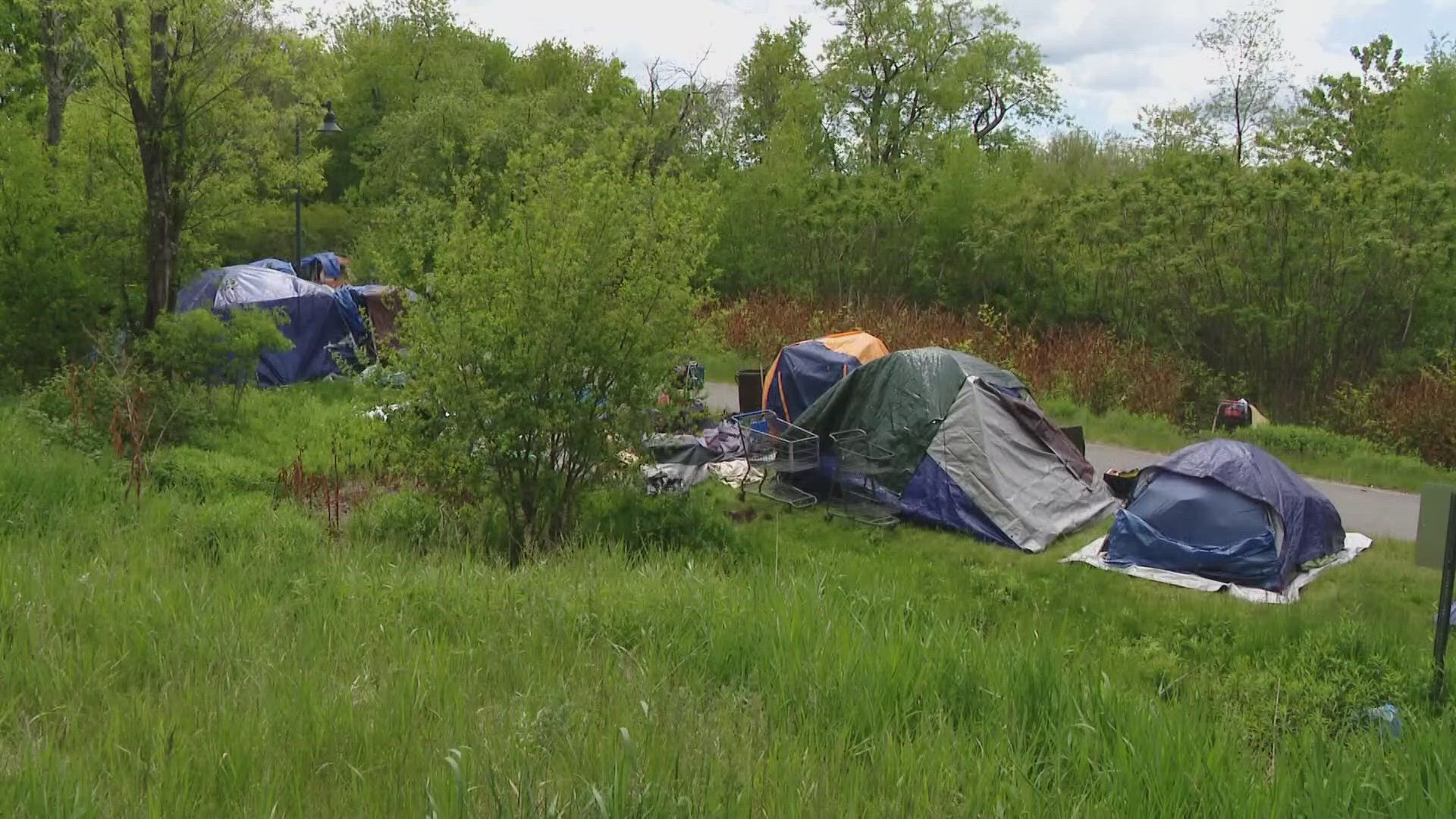PORTLAND, Maine — The U.S. Supreme Court voted last week to uphold city ordinances in Grants Pass, Oregon, that ban people from sleeping or camping in public spaces.
Justices ruled 6-3 in favor of the Johnson v. Grants Pass case on Friday, June 28.
The controversial decision affords communities across the country the power to ban people from sleeping or camping in public spaces. The ruling also allows municipalities to decide what penalties or consequences can be inflicted on people who do not follow city ordinances that prohibit the misuse of public spaces.
Portland, like many municipalities across Maine, is constantly working to address the complex challenge of homelessness.
Portland Mayor Mark Dion said the Supreme Court ruling only validates the city's responsibility to make sure everyone is sheltered.
"We've swept a number of encampments in the city," Dion said. "We've done that without arrest. We have a nationally recognized behavioral health unit within the police department. They're doing their work every day."
Dion said there were more than 400 tents at various encampments throughout the city last year.
According to a check Monday on the city's live interactive mapping system, 30 tents scattered in various places in Portland on city, state, and private property.
According to maps, 11 of those 30 tents within city limits were on state or public property.
Dion counts this stark difference from last year as a win, explaining the city has prioritized a housing-first model, being sure not to sweep encampments before shelter space or housing becomes available.
He explained he ran his campaign on taking a strong stance against encampments, and his position has not changed. Dion said encampments won't stand in the city as long as he is mayor, and public spaces will not be used for sleeping.
With the police department, social workers, and case managers all working together to address the issue of homelessness head on, Dion said he believes early detections and connecting people to services as soon they become unhoused is the best way to make sure everyone has shelter.
Joseph Kimball, 24, is currently homeless in Portland and has been on and off again since he was 19 years old. He said he had already started to feel the impacts of the Supreme Court ruling and the cities approach to managing homelessness.
"I've been woken up by the police a couple of times," Kimball said. "They told us we had to leave or we would be arrested."
Kimball said he feels the Supreme Court's ruling is wrong, and he believes people should be able to sleep wherever as long as they aren't bothering anyone.
For Kimball, staying at a local shelter is a last resort, explaining that shelters often have a lot of rules that make him feel like he is in prison.
Kimball has not had a steady job for more than a year, but he said even if he was working consistently that all of his money would go to paying for housing. The increasing cost of housing is an issue even working-class people are battling.
Although the city pushes people to use shelters rather than living outdoors, Kimball said shelters are sometimes full and at capacity.
"We still have nowhere else to go," Kimball said. "Where are we supposed to go? Stay awake and walk around all night?"
Kimballs stuffs his sleeping bag and all of his belongings in his backpack daily. He explained that even when shelters aren't full, he would still rather sleep under bridges at night and walk the streets during the day.
Dion said people who refuse to use shelters or who are reluctant to receive services that are offered to support people experiencing homelessness force city leaders to exercise their power, which he explained is a last resort.
"There's going to come a point where if they're totally uncooperative, then they're going to be removed from the setting, and if that requires an arrest, then so be it," Dion said. "But I want you to know that we're taking every step possible not to get to that place, and we haven't. In all this work in removing people from those environments, we have not seen a basis to arrest anyone."
Where Dion counts the Supreme Court ruling as a win for communities across the country, the executive director of Maine the American Civil Liberties Union Molly Curren Rowles said she sees it as a punishment for those who are already trapped in poverty.
"We know that it is not effective to punish people out of poverty, to have fines, to have jail time incurred is not an effective way to address this issue," Curren Rowles said.

